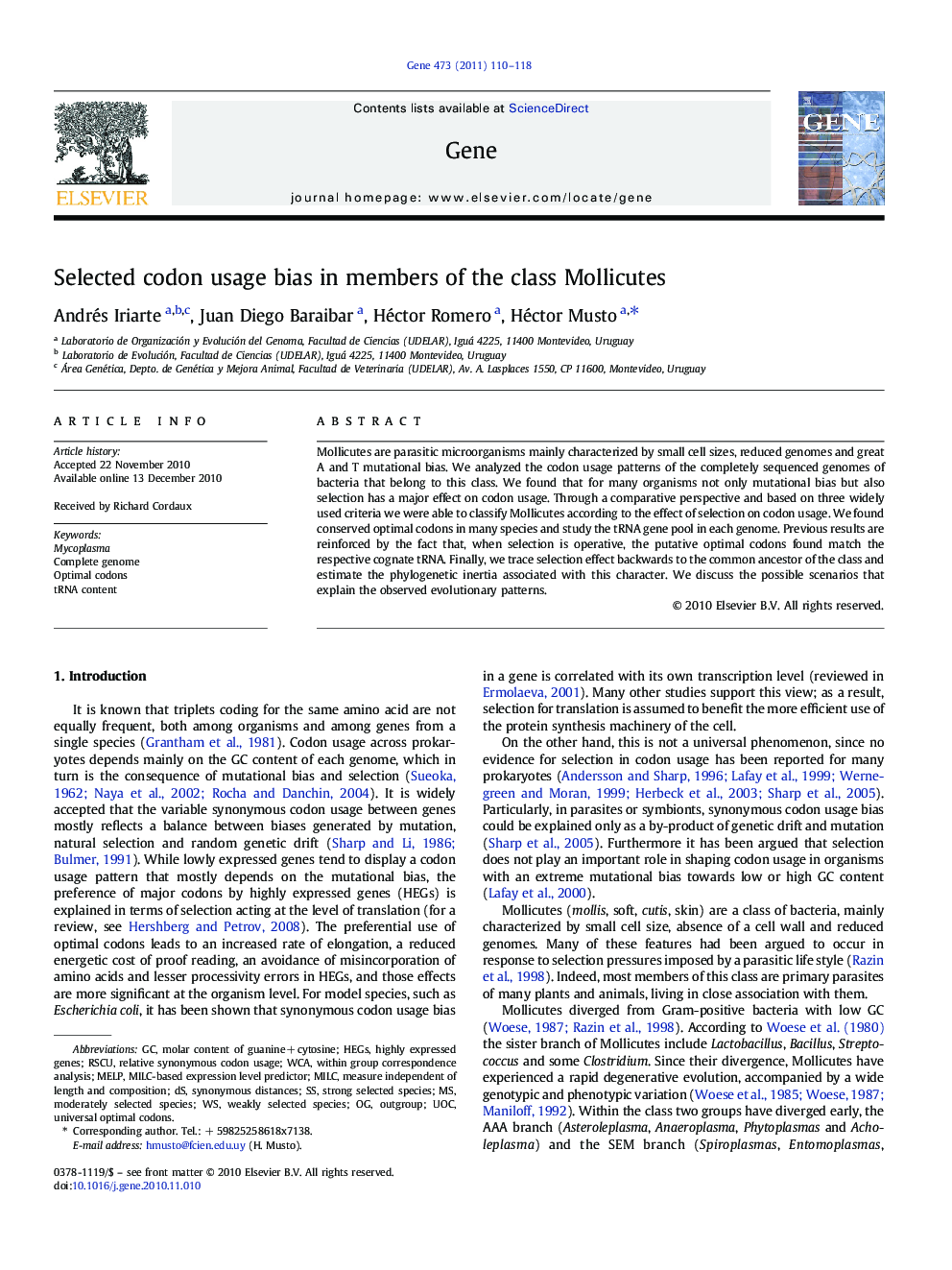| Article ID | Journal | Published Year | Pages | File Type |
|---|---|---|---|---|
| 2818444 | Gene | 2011 | 9 Pages |
Mollicutes are parasitic microorganisms mainly characterized by small cell sizes, reduced genomes and great A and T mutational bias. We analyzed the codon usage patterns of the completely sequenced genomes of bacteria that belong to this class. We found that for many organisms not only mutational bias but also selection has a major effect on codon usage. Through a comparative perspective and based on three widely used criteria we were able to classify Mollicutes according to the effect of selection on codon usage. We found conserved optimal codons in many species and study the tRNA gene pool in each genome. Previous results are reinforced by the fact that, when selection is operative, the putative optimal codons found match the respective cognate tRNA. Finally, we trace selection effect backwards to the common ancestor of the class and estimate the phylogenetic inertia associated with this character. We discuss the possible scenarios that explain the observed evolutionary patterns.
